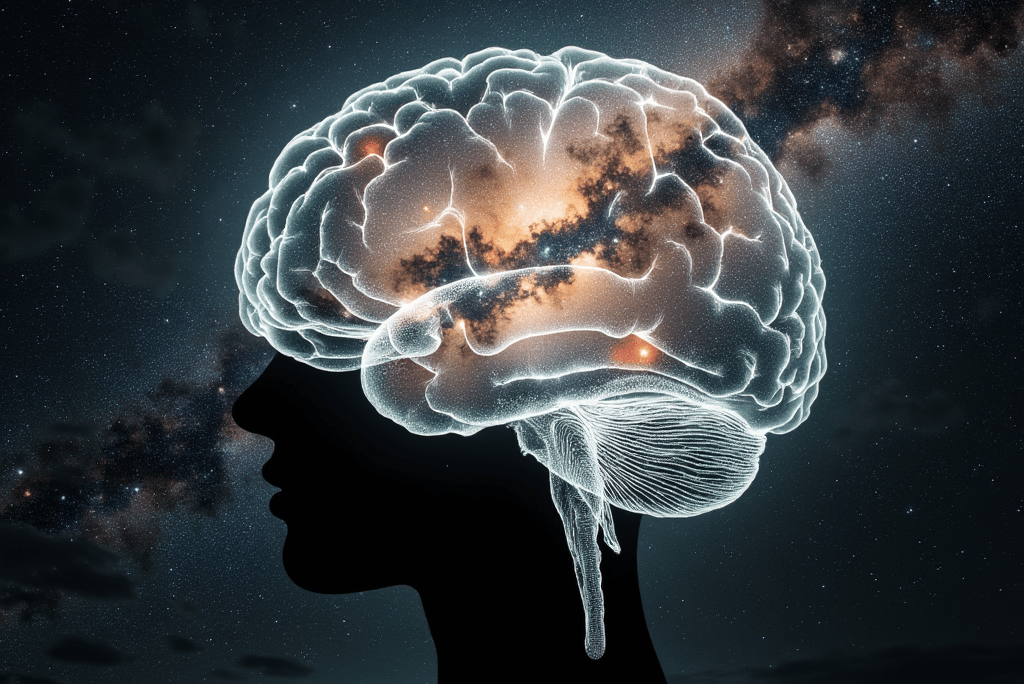Scientists say Consciousness is the Foundation of Reality
Explore the intriguing debate on whether reality is merely a concept. Top scientists argue that consciousness serves as the foundation of our perception of reality. Discover insights on reality, consciousness, and how they shape our understanding.
Ken Pealock
9/14/20247 min read
Is Reality Only a Concept?
The late Robin Williams used the phrase "reality...what a concept" as the title of one of his stand-up comedy albums. This phrase is a clever play on words, highlighting the idea that reality can be subjective or even a construct.
He echoes the findings and beliefs of many imminent scientists.
This podcast summarizes the key themes and ideas presented in a Lex Fridman Podcast with Professor Donald Hoffman AND a presentation titled "The Nature of Consciousness: A Neurophenomenological Approach." Both sources explore the nature of reality and consciousness, challenging conventional physicalist views and proposing alternative frameworks.
Source 1:
Donald Hoffman on the Illusion of Reality and the Primacy of Consciousness
Professor Donald Hoffman, a cognitive psychologist, presents a radical view: our everyday perception of reality, including space, time, and physical objects, is not a reflection of the underlying truth but rather an adaptive interface shaped by evolution. He argues that evolution favors organisms that perceive "fitness payoffs" – the potential for survival and reproduction – over those that perceive objective truth.
Key Themes and Ideas:
Reality as an Evolutionary Interface: Hoffman's core argument is that evolution has equipped us with an "adaptive set of perceptions" that prioritize fitness over accurate representation of the external world. He uses the analogy of a computer interface (icons on a desktop) hiding the underlying complexity (data structures, voltages).
Quote: "It's a real experience, and it's a real adaptive set of perceptions. So it's an adaptive set of perceptions. Full stop."
Quote: "Evolutionary theories suggest a different interpretation. I'm seeing a data structure that is encoding a convenient way of looking at various fitness payoffs."
Space-Time is Not Fundamental: Building on work in physics, Hoffman suggests that space and time are not fundamental structures of reality but rather part of the interface. He points to the limitations of current physics theories at extremely small scales (10^-33 centimeters, 10^-43 seconds) as evidence that space-time "doesn't even make sense" beyond a certain point.
Quote: "All they can do is tell us that when you put us together, space time is doomed at 10 to the minus 33 centimeters, 10 to the minus 43 seconds. Beyond that space time doesn't even make sense."
Quote: "You now have to think outside of space time. Now, of course I should back up and say, this framework that I'm speaking about, and the physics framework as well, the standard model of physics, the foundation that it's being based right now is doomed."
Consciousness as Fundamental: In contrast to physicalism, which attempts to explain consciousness in terms of physical processes, Hoffman proposes that consciousness is fundamental. He is developing a mathematical theory where conscious agents are the basic building blocks of reality.
Quote: "So what what I chose to do was to have three things. I said that there are conscious experiences, feeling of headache, the smell of garlic, ... And how that will affect the experiences of other conscious agents, including itself."
Quote: "And then you have these networks of conscious agents interacting, and the theory predicts that that network of conscious agents will create data structures, and the data structures that are predicted are space and time."
The Problem of Understanding vs. Building: Hoffman highlights the distinction between understanding a phenomenon conceptually and truly understanding it to the point where you can build it. He applies this to consciousness, arguing that current theories haven't reached the level of understanding required to "boot up" specific conscious experiences.
Quote: "One thing about understanding is you can understand for fun, the other one is to understand so you could build things. And that's when you really have to understand... if you can't build it, you don't understand it effectively."
Consciousness as the Ground of Being: Drawing parallels with some spiritual traditions, Hoffman suggests that the deepest level of reality might be "being period," the ground of consciousness itself, rather than a specific "being" or deity.
Quote: "I think the closest way to think about God is being period, not a being, but being, the very ground of being itself is God. I think that's the deep, and from my point of view, that's the ground of consciousness."
Portals into Consciousness: Hoffman views individual bodies and experiences as "portals" into this underlying consciousness. He suggests that having children creates new portals and speculates whether psychedelics might also offer temporary or different types of access to conscious experience.
Quote: "your body of Lex Fridman that I'm creating. And it's a genuine portal... I'm definitely communicating with your consciousness. And we know that we have one technology for building new portals. We know one technology, and that is having kids."
Quote: "I think that the psychedelics, the psychedelics may, because they might be affecting this portal in certain ways that it turns it around and opens up... Maybe once we understand this thing is a portal, your body as a portal, and understand all of its complexities, maybe we'll realize that that portal can be shifted to different parts of the deeper consciousness and give new windows on it."
The Meaning of Life as Waking Up: Hoffman speculates that the meaning of life might involve consciousness immersing itself in perceived reality and then slowly waking up to its true nature as the author of that reality.
Quote: "somehow consciousness wakes up to itself by knowing what it's not."
Quote: "Consciousness immerses itself fully into a particular headset, gets lost in it, and then slowly wakes up."
Source 2:
Marcelo Glazer on the Nature of Consciousness: A Neurophenomenological Approach
Marcelo Glazer's, a professor of physics and astronomy, explores consciousness through a "neurophenomenological" lens, aiming to bridge the gap between subjective experience (phenomenology) and objective scientific study (neuroscience). He critiques traditional physicalist and panpsychist approaches and emphasizes the embodied nature of consciousness and its dependent origination.
Key Themes and Ideas:
Neurophenomenology as a Bridge: Glazer advocates for neurophenomenology as a methodology that integrates subjective experience with objective scientific investigation. He highlights studies using introspection and real-time fMRI as examples of this approach.
Quote: "aim is dialogue across cherished distinctions between academic areas of study and between science and quote religion"
Quote: "I hope for the future within science is a real Embrace of neurophenomenology uh to take a causal manipulationist approach towards subjective experience"
Critique of Physicalism and Panpsychism: Glazer argues that physicalism, which tries to define what is "physical" a priori, is "wrongheaded" because science continually expands our understanding of nature. He also critiques panpsychism, the idea that consciousness is fundamental at the microphysical level, citing the "combination problem" – how micro-level consciousness combines to form macro-level experience.
Quote: "physicalism is useless to it [understanding the mind and its place in nature]"
Quote: "Take a hundred of them shuffle them and pack them as close together as you can still each Remains the Same feeling it always was so he's basically saying look if you think that there are phenomenal properties scattered everywhere you need to explain how they cohere in or combine into subjects of experience"
Emptiness and Dependent Origination: Drawing from Buddhist philosophy, Glazer introduces the concepts of shinata (emptiness) and dependent origination. He sees echoes of these ideas in Western philosophy, suggesting that the mind and world are mutually dependent and arise together.
Quote: "in Buddhism this absence at the heart of presence is called shinata emptiness... and in one of the very early Indian Buddhist philosophical texts by the Indian philosopher Nagar, the fundamental stanzas of the middle way narjina says whatever is dependently co-Arisen that is explained to be emptiness"
Quote: "Maurice Melo ponti said in his phenomenology of perception the world is inseparable from the subject but from a subject who is nothing but a project of the world"
The Primacy of Lived Experience: Glazer emphasizes the "primacy of lived experience," meaning that consciousness is not separate from our embodied existence and interaction with the world.
Quote: "lived experience never shows up apart from our embodied being in the world"
Emergence of Individuality through Network Dynamics: He proposes a schematic model where individual systems, like cells or organisms, emerge from a tightly interdependent network of processes. This "autopoiesis" or self-production creates a kind of closure and individuality within a larger environment.
Quote: "when we have a system that has this kind of network density we have the emergence of a kind of individuality where every process is contributing to every other process"
Quote: "a system in the molecular domain that's made up of molecular processes that form a reaction Network that is that catalyze each other's production produce each other in a way that also involves the fabrication or production of a of a membrane that makes the system bounded in space that this is the minimal example of the emergence of we could say a body that is an individual that's not only individuated but self- individuating"
Dependent Origination in Three Aspects: Glazer explains that in Mādhyamaka philosophy, dependent origination has three aspects: causal dependence, dependence of parts on the whole (and vice versa), and dependence on concepts – the way we frame and observe reality.
Quote: "dependent origination can be thought of in three ways or having three aspects there's causal dependence dependence on conditions there's the dependence of the parts on the whole... and then there's an interesting one that Chandra kirti points out which is dependence on Concepts"
The Horizon of Awareness: Glazer uses the metaphor of a "horizon" to describe the structure of awareness. While we always have a horizon, it is not a fixed boundary but something that changes as we move and explore, opening up new "vistas."
Quote: "the Horizon metaphor is that um it it's a structure that goes with you but of course you move and explore and you open up New Horizons"
Quote: "the world is the Horizon of all Horizons and what he means by that is that it's it's not just another Horizon it's the um the the the the thought that we can that that we can think that all Horizons themselves open up into other ones"
Both sources challenge conventional understandings of reality and consciousness, moving away from a purely materialist or physicalist perspective.
Both Hoffman and Glazer are critical of the idea that physical matter and space-time are the fundamental building blocks of reality. Hoffman argues it's an illusion, while Glazer suggests that physicalism is a limited framework for understanding consciousness.
Emphasis on Non-Physical or Emergent Foundations: While their proposed alternatives differ, both locate the foundation of reality outside of or beyond the standard physical description. Hoffman posits fundamental conscious agents, while Glazer emphasizes the interdependent emergence of individuality and experience through network dynamics and dependent origination.
The Role of Subjective Experience: Both acknowledge the importance of subjective experience. Hoffman sees it as the fundamental reality from which the physical world is generated, while Glazer integrates it with objective methods in neurophenomenology.
To hear an audio podcast of this post, go to realityontrial.substack.com.
https://buymeacoffee.com/kpealock
Check out my (almost) free business books and videos: https://www.gorillajoemktg.com
Read my own spiritual views in The Heretic’s New Testament
Another related book is The Divine Puzzle: Unraveling the Mystery of Existence
See my other fantastic books: https://book-showcase.com
Take a peek at my political newsletter at: libertyordeath101.substack.com


